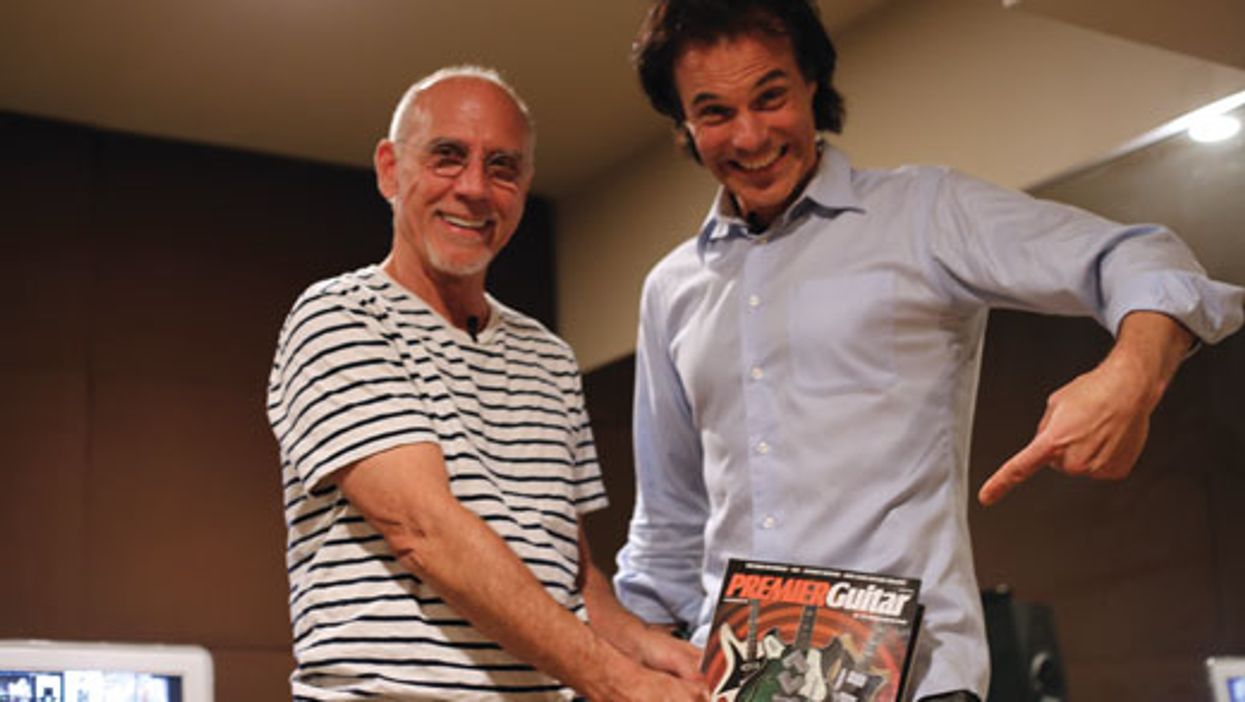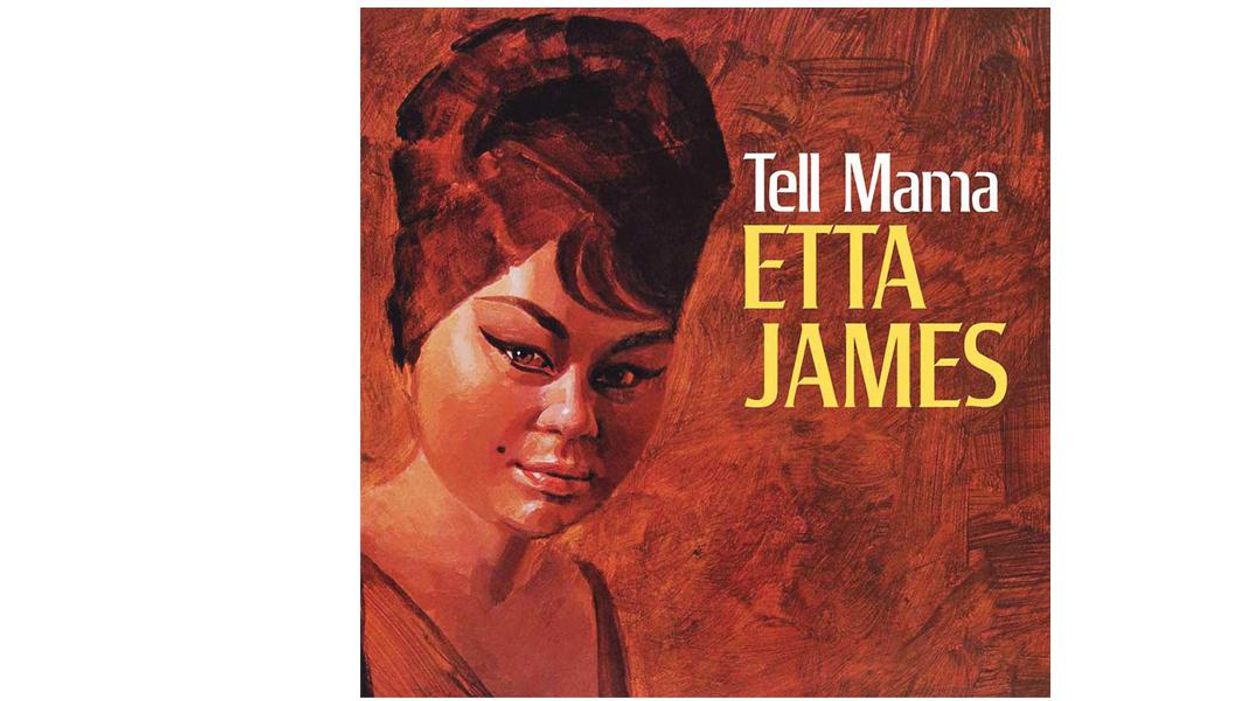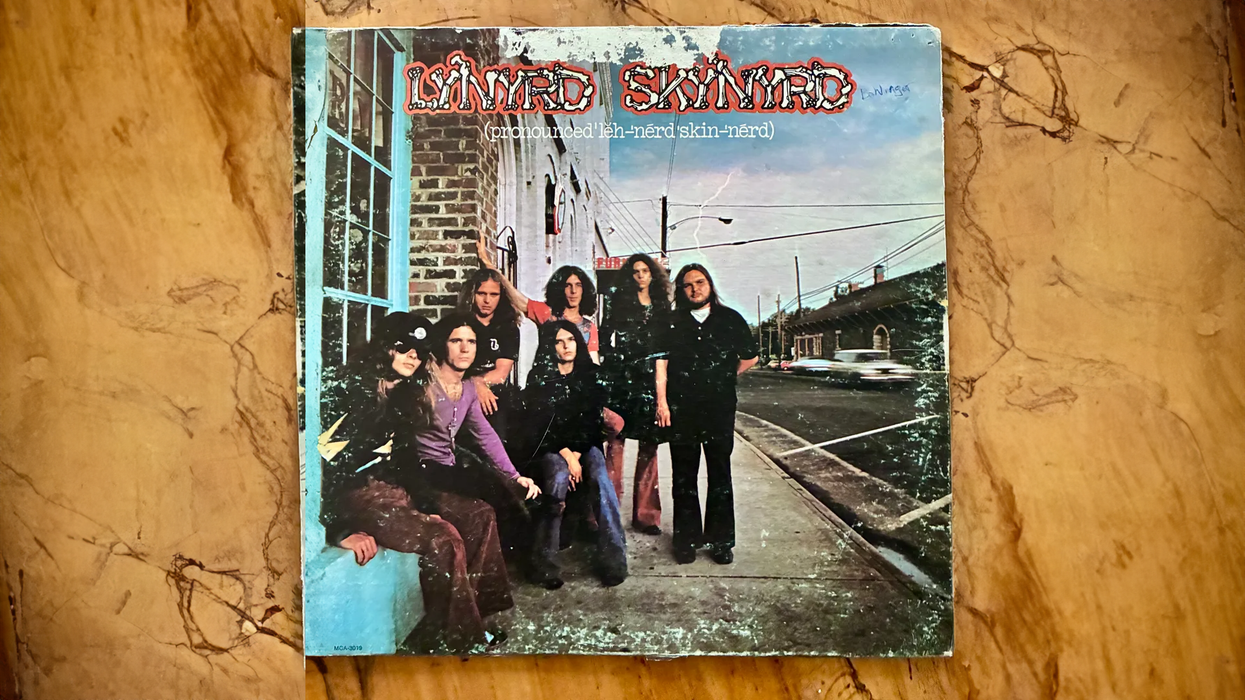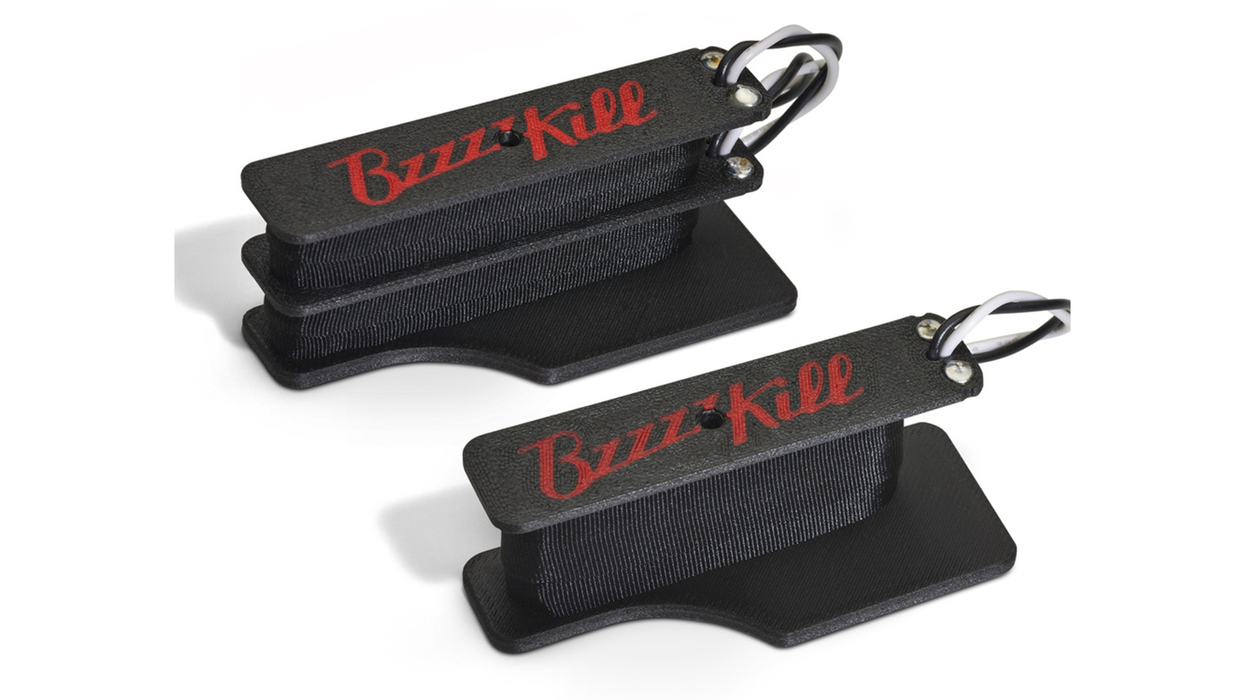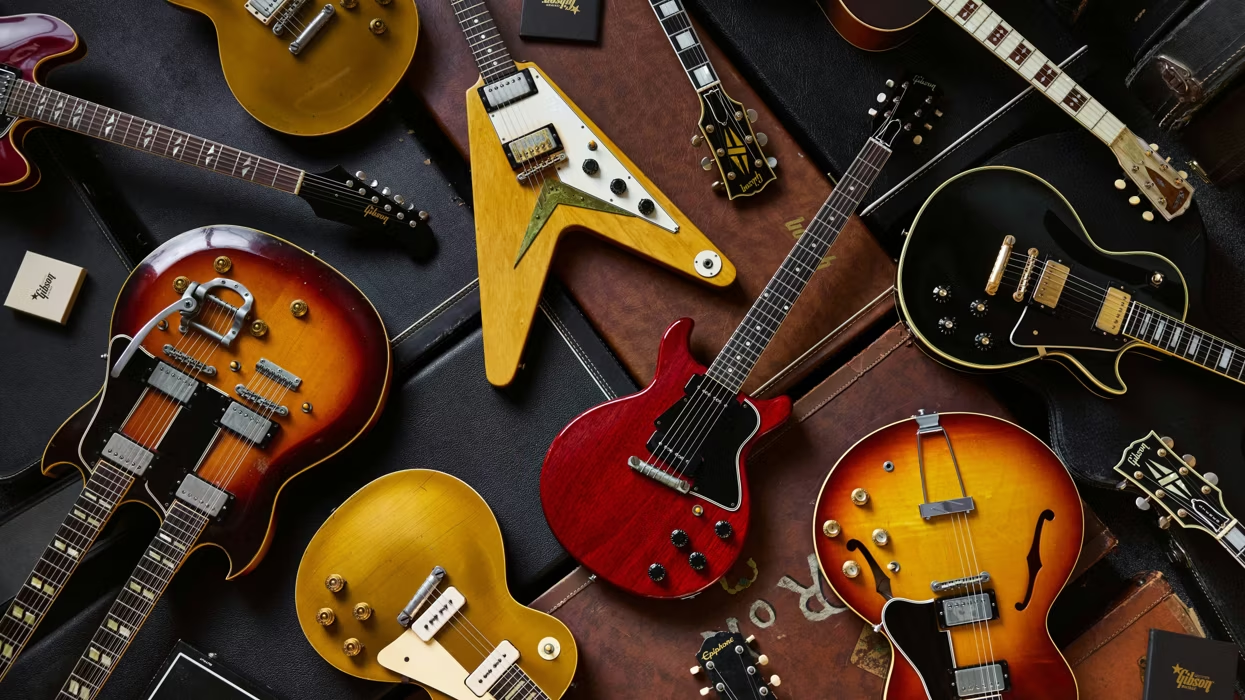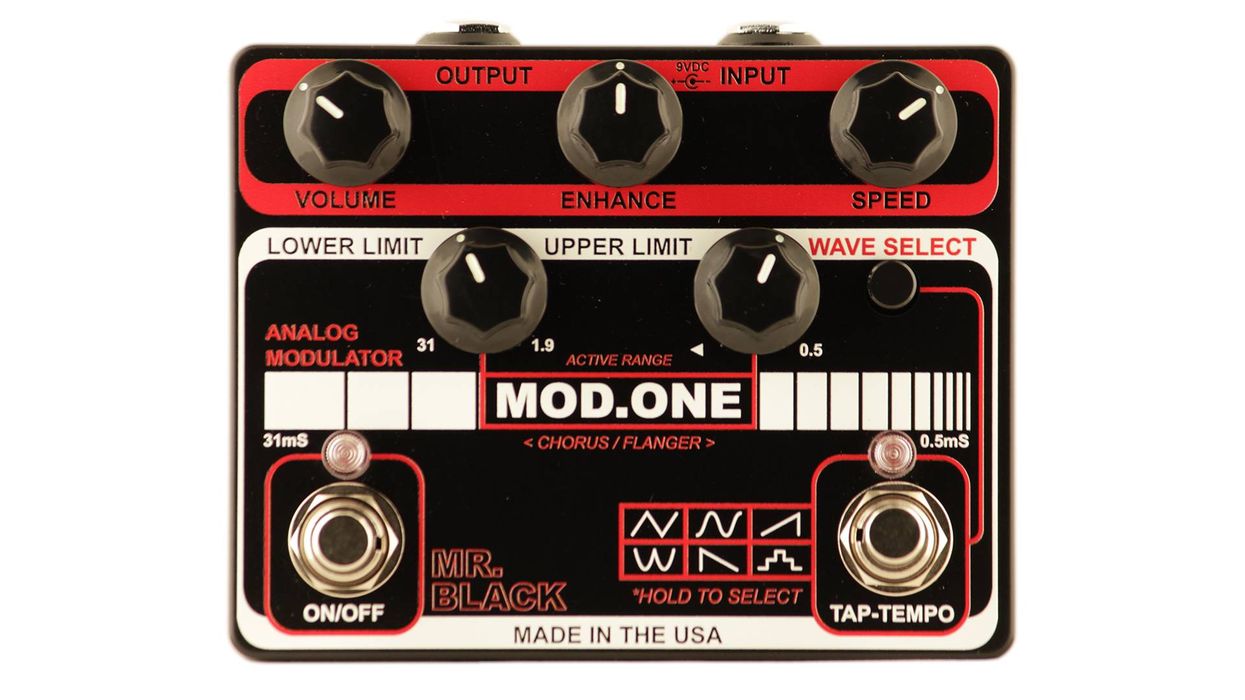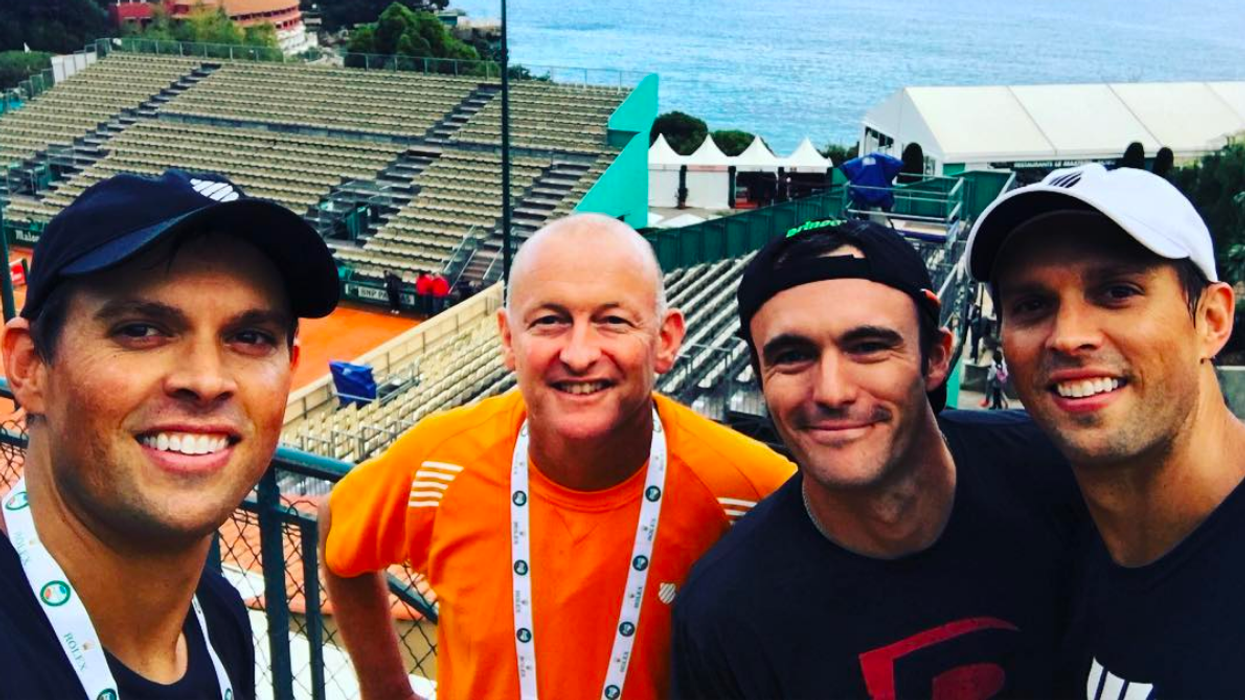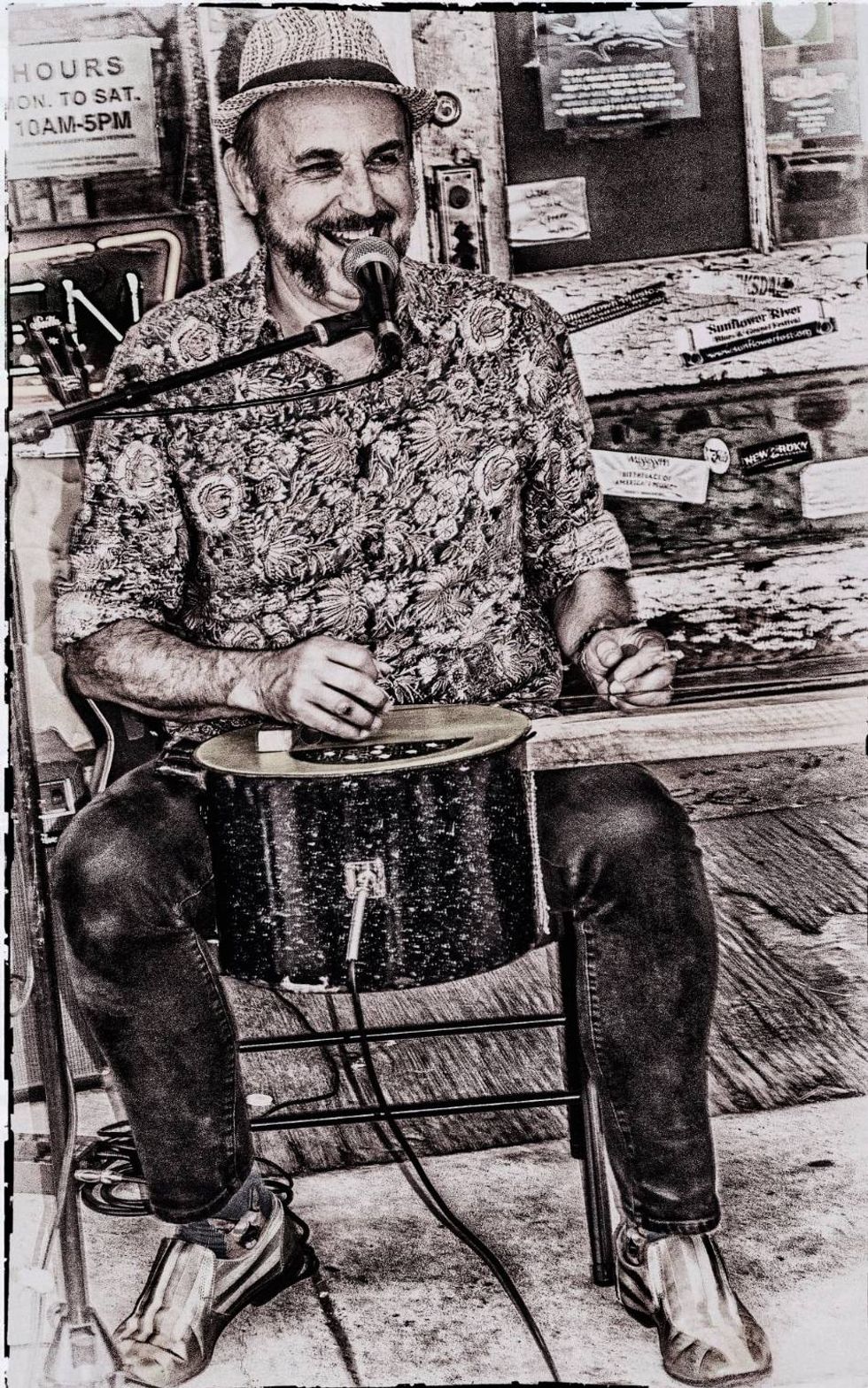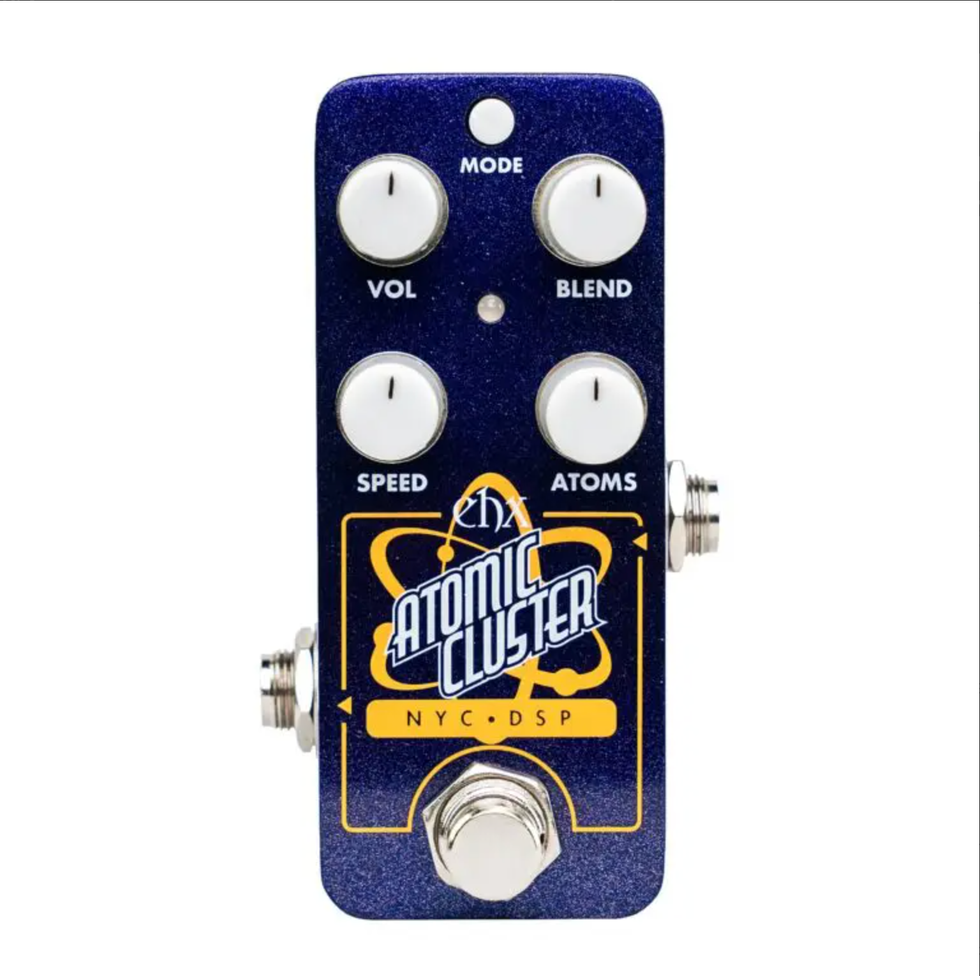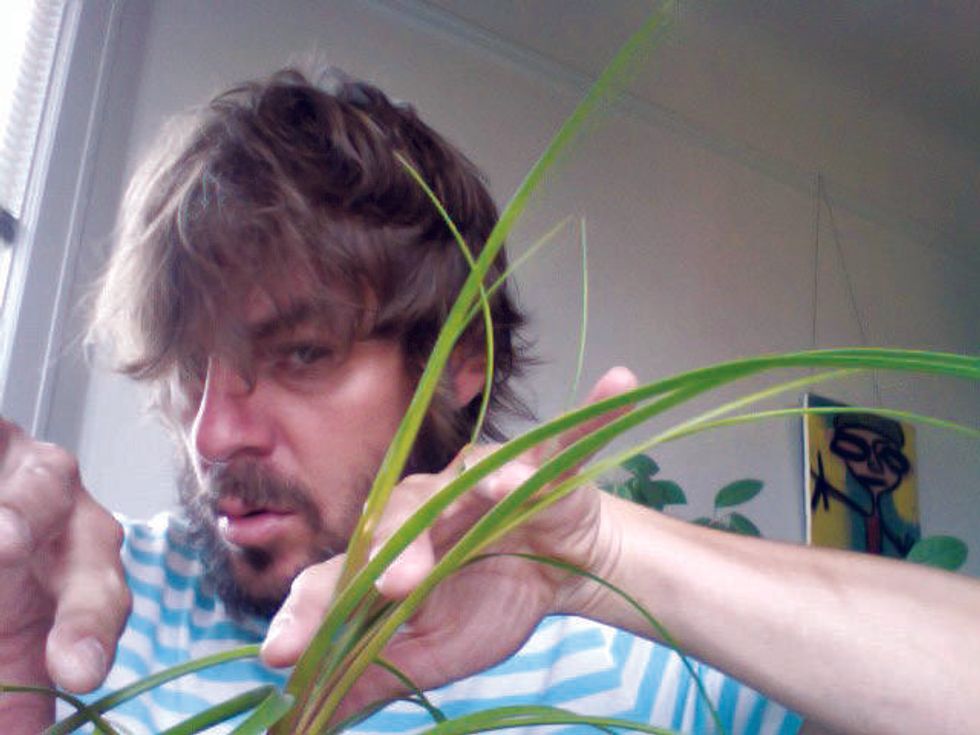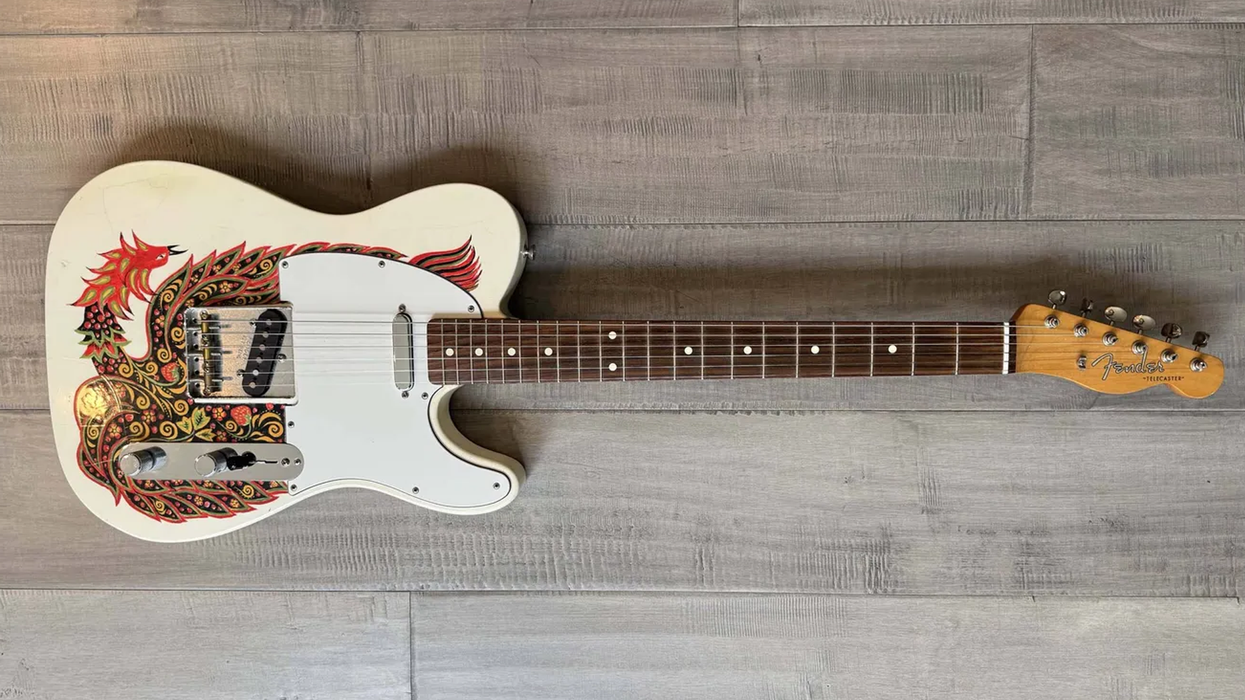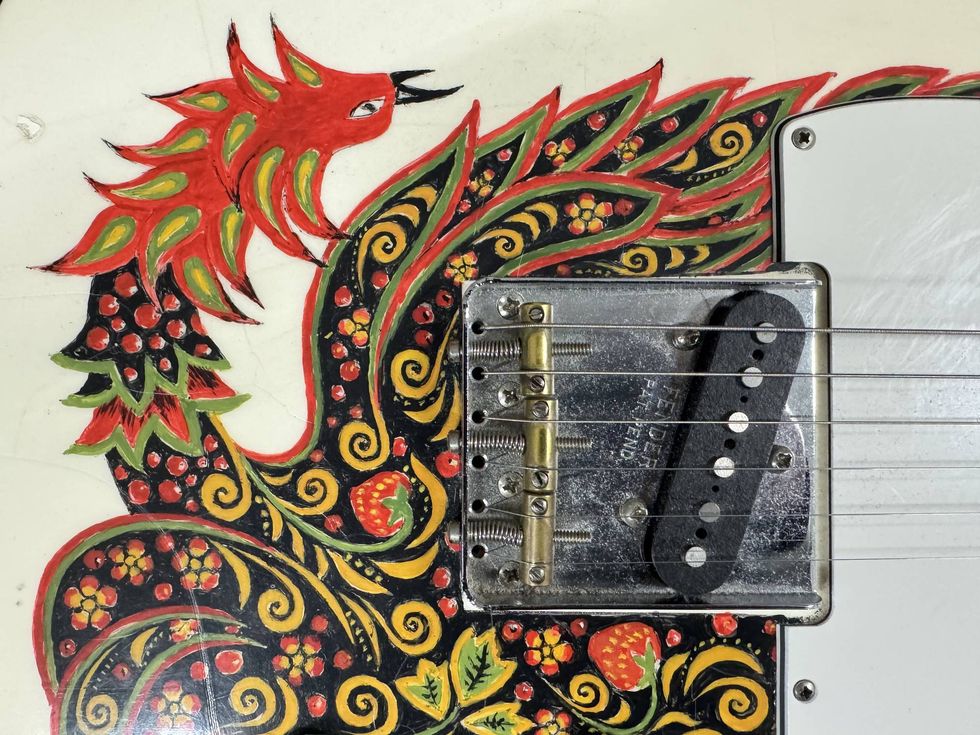There are a lot of glitches in human design. Our backs were built for climbing trees, not walking upright. Our narrow pelvises make childbirth dangerous/painful and prevent our brains from increasing in size. Our teeth are too crowded in our mouths, and our appendix's sole purpose, it seems, is to kill us. Of all our design flaws, the most troubling to me is that when the pressure is on and we need to perform at our best, that's when we're most likely to choke.
Start a casual conversation with a friend? No problem. But when I try it with someone I'm attracted to, I sound idiotic at best, dangerous at worst. Parallel parking on an empty street? Challenging, but eventually I'll get somewhere near the curb. Parallel parking with a line of cars behind me and people on the sidewalk? I usually give up and look for a wide space to pull straight into.
Here's an example in our world of music. Most of you witnessed Nick Jonas' famously painful guitar solo with Kelsea Ballerini on the 2016 Academy of Country Music Awards broadcast, right? If not, here's what you missed: Jonas was to walk out for a big showbiz reveal, rip a guitar solo, and then join Ballerini on vocals. Jonas started strong, but hit a bad note, followed by a few more equally bad notes, then gave up and tucked his guitar behind his back—leaving the remaining bars full of shame rather than music. This led to much YouTube mockery.
I feel a tad guilty about this reference, because I genuinely like Jonas. He's wildly talented, clever, funny, and, most important, a genuinely good person. So, Nick, if you're reading this, please know I'm not picking the scab but holding you up as someone to emulate. Nick responded to his fumble with a humorous tweet, then went back to dating supermodels and earning millions in music and films. Good on you, Nick.
I'm a seasoned musician who has been playing on TV perhaps longer than Jonas has been alive, and yet I routinely jack up under pressure. About a decade ago, I was playing The Tonight Show and had a simple signature guitar riff at the head, turnaround, and outro. “Mary Had a Little Lamb" is more complicated than this riff, yet I bumbled one of its four simple notes in front of millions of people. To this day, it pains me to remember that shameful five seconds.
So, why do we miss the easy layup or the two-foot putt? I recently listened to a Freakonomics podcast called “Why We Choke Under Pressure," where Sian Beilock, cognitive scientist and president of Barnard College, explained the science behind our bumbles. Beilock says her research shows that “individuals who have the most ability to focus, the most working memory, the most fluid intelligence, are actually more prone to perform poorly under stress. And the idea is that if you normally devote lots of cognitive resources to what you're doing and being in a pressure-filled situation robs you of those resources, you can't perform as well. There's research showing that when you have friendly faces in front of you, people who are supportive—although that could feel nice, it actually creates pressure-filled situations. You often start thinking of yourself as they might."
The way I see it, there are two types of mistakes:
1. Your fingers go to the wrong place.
2. You think about what people may think of you instead of just playing.
Your fingers not going where you want is unavoidable. Luckily, the more you play, the less often that's going to happen, but it's still going to happen. However, those errant notes are more of an opportunity than a problem. Handled the right way, they will lead you to a more interesting melody than you may have played if everything went right. As Miles Davis said, “Don't fear mistakes. There are none." That flatted fifth you hit because you are one fret off will be the note that your audience will love the most.
But nothing good comes from getting in your head. Dr. Beilock's research suggests that great performers choke when they pay too much attention to the details of what they're doing, and that “these details should be left on autopilot."
I was at the home of my friend, author Robert Hicks, for a small dinner party a few years ago. It being the South, there was prayer before we ate. It being Nashville, Larry Carlton happened to be there with his guitar, so the prayer became Carlton playing his arrangement of “The Lord's Prayer." Near the end, a phrase veered off course, and I thought I saw Carlton wince while he whispered “dammit." No prayer had ever made me feel better about myself.


